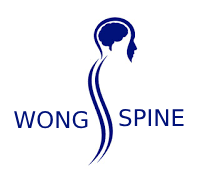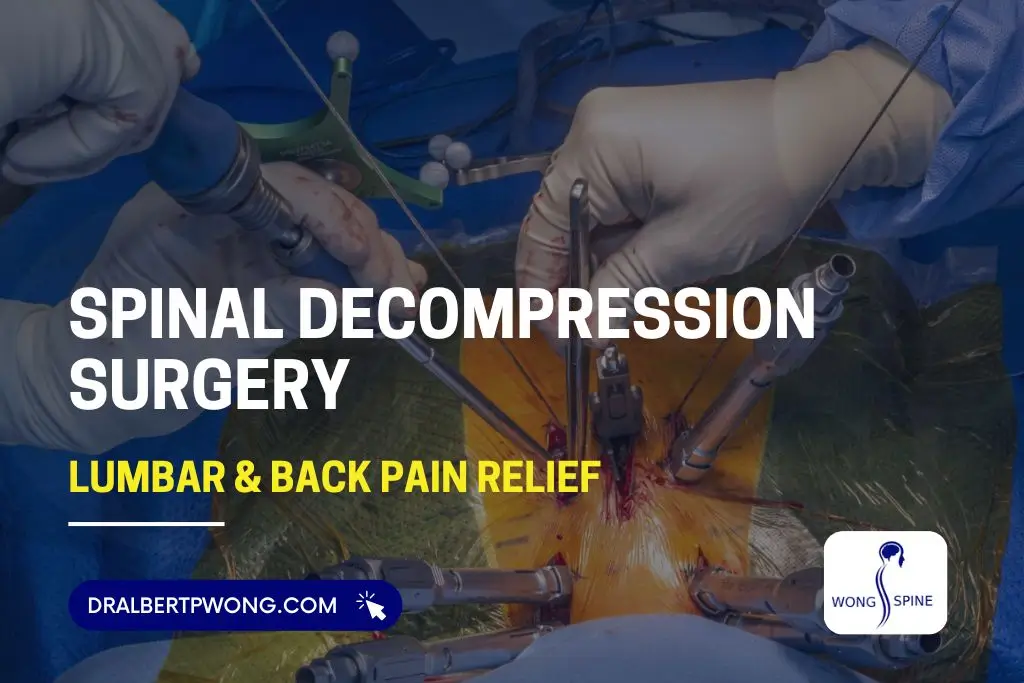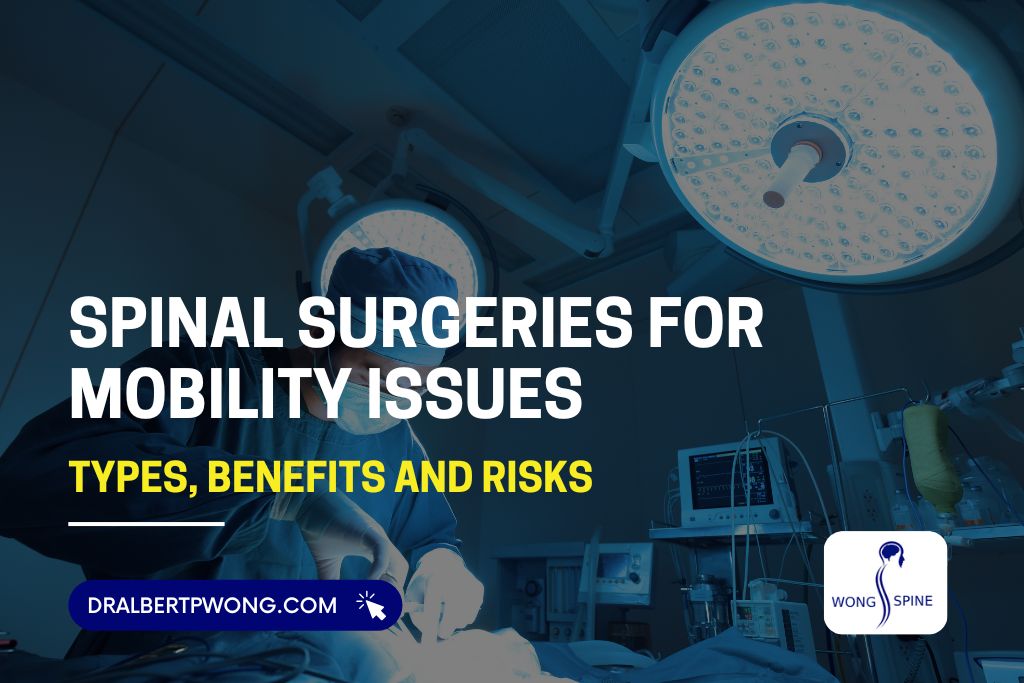Overview
Choosing the right spine surgeon is essential for safe and effective care. The spine affects mobility, posture, and overall health.
A qualified surgeon has specialized training in diagnosing and treating spinal conditions, including minimally invasive and complex surgeries. Important factors include surgical experience, board certification, and familiarity with advanced procedures.
The surgeon should provide a treatment plan tailored to the patient’s condition to optimize outcomes and reduce risks.

Why Choosing the Right Spine Surgeon Is Crucial for Your Spine Health?
A skilled and best Spine Surgeon can significantly influence your treatment outcome. From diagnosis to recovery, each step requires expertise and precision.
Board Certification and Specialization Matter
Board certification confirms that a surgeon meets nationally recognized standards in training, knowledge, and ethics.
Key points to consider:
- Verify that your surgeon is board-certified in orthopedic or neurosurgery.
- Check for fellowship training in spine surgery.
- Look for membership in professional spine societies.
Choosing a board-certified and fellowship-trained surgeon ensures adherence to the highest clinical standards and continuous professional development.
Experience Improves Surgical Outcomes
Experience directly impacts surgical precision and patient safety.
What to evaluate:
- Number of spine surgeries performed annually.
- Experience with your specific condition or procedure.
- History of successful outcomes and low complication rates.
An experienced surgeon is more likely to anticipate potential complications and apply refined techniques to improve long-term results.
Reputation Reflects Patient Satisfaction
A surgeon’s reputation often mirrors patient experiences and clinical performance.
Look for:
- Verified patient testimonials and reviews.
- Professional reputation among other physicians.
- Transparency in patient care and communication.
A positive reputation demonstrates consistent quality, professionalism, and dedication to patient well-being.
Technology and Surgical Techniques Impact Recovery
Advanced technology enables safer and more precise spine surgery.
Consider the following:
- Availability of minimally invasive spine surgery (MISS).
- Use of robotic or image-guided systems.
- Access to modern diagnostic imaging and surgical navigation tools.
Modern techniques reduce surgical trauma, shorten hospital stays, and accelerate recovery times.
Personalized Care Ensures Better Results
Every spine condition is unique. A tailored approach ensures the treatment plan aligns with your health, lifestyle, and recovery goals.
Personalized care should include:
- Detailed preoperative evaluation and imaging.
- Customized treatment recommendations.
- Continuous follow-up during recovery.
A patient-centered surgeon values open communication, education, and collaborative decision-making.
Why Is a Spine Surgery Consultation Essential Before Treatment?
A spine surgery consultation allows the surgeon to evaluate your condition and determine if surgery is appropriate.
During the consultation, the surgeon will:
- Review your medical history and previous treatments.
- Perform a physical examination and review imaging.
- Explain surgical and nonsurgical options.
This ensures surgery is recommended only when conservative treatments have failed and the benefits outweigh the risks. It also provides an opportunity to ask questions and understand the expected recovery process.

What Are the Most Common Spine Surgery Options?
Spine surgery options vary depending on your diagnosis, symptom severity, and overall health.
Common procedures include:
- Discectomy or Microdiscectomy: Removes a herniated disc pressing on a nerve.
- Laminectomy: Relieves pressure by removing part of the vertebra.
- Spinal Fusion: Joins vertebrae to stabilize the spine.
- Artificial Disc Replacement (ADR): Preserves motion while replacing a damaged disc.
- Vertebroplasty and Kyphoplasty: Repair compression fractures with bone cement.
These procedures are often performed using minimally invasive spine surgery (MISS) techniques, offering smaller incisions, less pain, and faster recovery compared to traditional open surgery.
How Does a Surgeon Experience Impact Spine Surgery Success?
A surgeon’s experience influences every stage of care from preoperative evaluation to postoperative recovery.
Important aspects include:
- Proficiency in specific spine surgery procedures.
- Understanding of complex spinal anatomy.
- Ability to manage intraoperative and postoperative complications.
An experienced spine surgery specialist near you can assess risks, anticipate challenges, and select the most effective techniques. Patients treated by seasoned surgeons generally experience lower complication rates and improved functional outcomes.
What Should You Expect During Spine Surgery Recovery?
Recovery is a critical phase that determines long-term success. Patients should be well-informed about each stage of the process.
During recovery, expect:
- Pain management: Medications and physical therapy help control discomfort.
- Rehabilitation: Guided exercises restore mobility and strength.
- Gradual activity resumption: Movement restrictions are lifted progressively.
- Follow-up appointments: Surgeons monitor healing and progress.
A structured recovery plan minimizes complications and promotes spinal stability. Following medical advice closely ensures the best possible outcome and long-term comfort.
Care at Wong Spine
Albert Wong, MD, specializes in complex spinal conditions at Wong Spine in Los Angeles and Beverly Hills. Dr. Wong is a board-certified spine surgeon with expertise in minimally invasive surgery and artificial disc replacement.
Patients benefit from:
- Thorough back assessments and cutting-edge diagnostics.
- Understand your Spine Surgery options with Clear explanations
- Custom surgical plans are designed for each disorder.
- Supportive care through recovery and rehabilitation.
With a focus on patient education, safety, and precision in every procedure, Dr. Wong and his team are committed to optimizing the patient experience.
With an unwavering commitment to excellence, patients can be assured of receiving the best care to restore mobility, relieve pain, and improve quality of life.
Final Thoughts
Choosing the best spine surgical treatment specialist entails scrutinising their competencies, knowledge, experience, and communication capabilities. These factors help ensure a safe procedure and a smoother, more comfortable recovery process.
Before making a decision, be sure to:
- Check board certification and fellowship training.
- Inquire about the surgeon’s experience in treating your specific condition.
- Discuss minimally invasive spine surgery options.
- Understand the recovery process and what to expect in the long term.
When a knowledgeable and compassionate specialist performs best Spine Surgeon, it can provide lasting pain relief, restore function, and significantly improve quality of life. Contact us today to schedule a consultation and take the first step toward a healthier spine.
FAQs About Choosing the Right Spine Surgeon
1. When does it become an option to have best Spine Surgeon?
While physical therapy, medication, or injections can stop the pain for a time, surgery is considered when they no longer work. Other signs that may require surgery include constant nerve pain, weakness, or loss of bladder control.
2. What should I ask a spine surgeon during consultation?
Ask about your diagnosis, treatment options, surgical risks, recovery time, and your surgeon’s experience with similar cases. Clear answers help build confidence in your care.
3. Does insurance cover spine surgery?
Most insurance plans cover medically necessary spine surgeries. Confirm coverage, pre-authorization, and estimated costs with your insurance provider and the clinic before scheduling.
4. Can lifestyle habits affect recovery?
Yes. Healing is further delayed by smoking, poor eating, and inactivity. A healthy lifestyle alongside your surgeon’s pre- and post-surgery instructions helps in quick recovery.
Important: This blog post is for informational purposes only and does not constitute medical advice. Consult with a qualified healthcare professional for a diagnosis and treatment plan.






